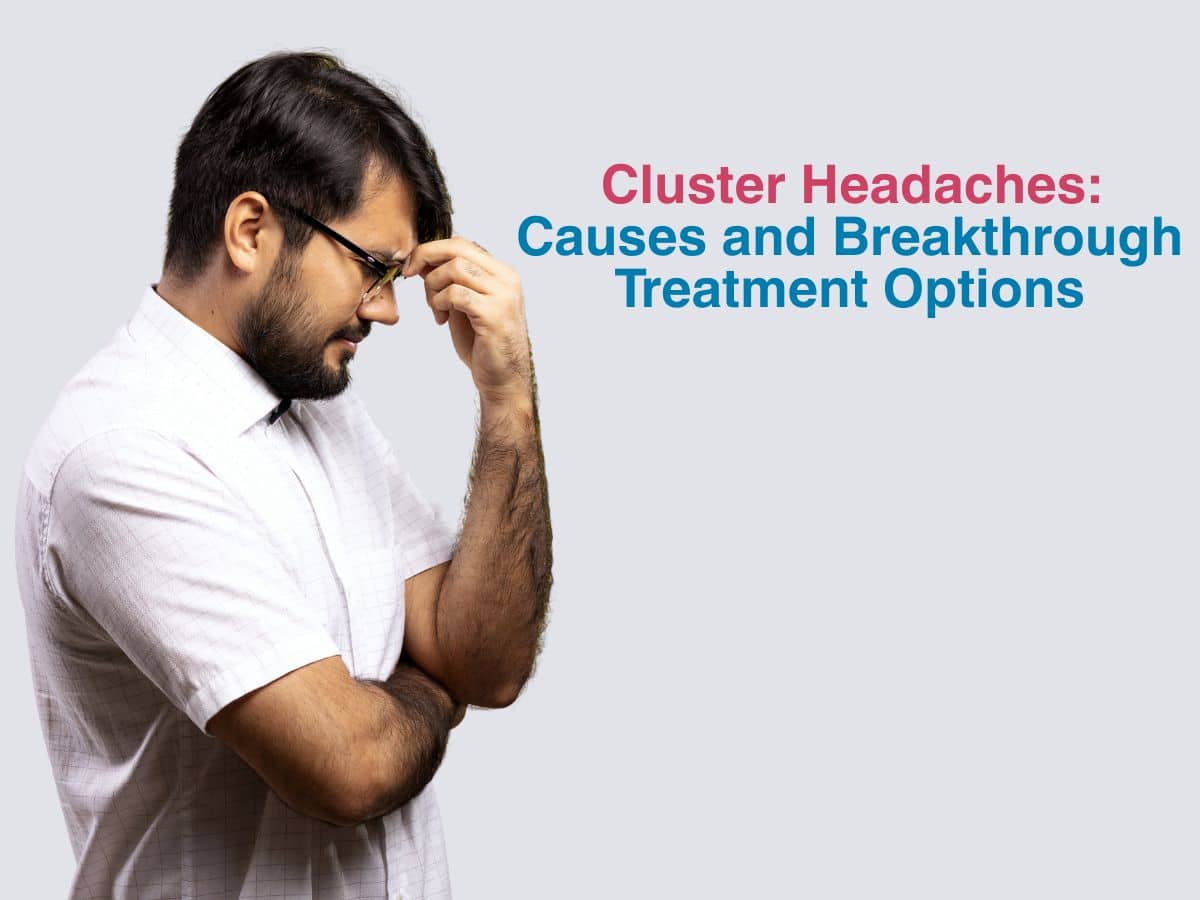
Cluster Headaches: Causes and Breakthrough Treatment Options
 Cluster headaches are very severe headaches that can affect one side of the head or both and seem to come and go at the same time, over a few weeks or months. You will be normal otherwise at other points of time, until the next ‘cluster’ hits, in which case the pain and associated symptoms begin again. For most people, it feels like a stabbing kind of pain that begins near their eyes or head and then it spreads to other parts of the face. You will be in tears and have a runny nose because of it.
Cluster headaches are very severe headaches that can affect one side of the head or both and seem to come and go at the same time, over a few weeks or months. You will be normal otherwise at other points of time, until the next ‘cluster’ hits, in which case the pain and associated symptoms begin again. For most people, it feels like a stabbing kind of pain that begins near their eyes or head and then it spreads to other parts of the face. You will be in tears and have a runny nose because of it.
What Causes Cluster Headaches To Start?
The exact causes for cluster headaches cannot be specifically listed out, but you can think of them as triggers. When you are exposed to the trigger, your body responds with a headache that either begins to come every few hours in a day or strikes you almost at the same time every day and it lasts for about an hour or so. For many people, their cluster headaches seem to happen only at night, right before bedtime, though why this happens is not well understood. Specific well known triggers include strong odours, smoke, very bright lights, change in seasons or or certain medications. Scientists think that the pain begins because there is some issue with the trigeminal nerve or that it may get overstimulated due to histamines.
How To Prevent Cluster Headache Attacks-
Preventive measures include not being exposed to the trigger, but this is easier said than done. You will be prescribed medications that can help in this regard- these help by reducing the duration of your headaches and the cluster as a whole. For some people, they may be given drugs to deal with their blood pressure, depression, allergies or other comorbid causes. Otherwise, once you have a cluster headache, taking pain medications to help deal with the symptoms can seem like a much better choice. Working on getting enough sleep also helps most people reduce the frequency of their cluster headaches.
Breakthrough Treatments For Cluster Headaches-
Some of the most recent breakthrough treatment approaches for cluster headaches include-
- The use of 100% oxygen at the rate of 6-12 litres per minute for 15-30 minutes, several times in a day.
- The use of triptans which can be either injected or used as a fast acting nasal spray. But, this is not a great option for people who have heart or circulation related issues.
- Local anaesthetic agents may be useful for some folks.
- Synthetic versions of somatostatin may be used as medication to help calm your brain.
- Preventive treatment includes the use of drugs like prednisone which is a steroid, drugs to relax blood vessels and improve circulation, or even surgery in a few extreme cases.
- The use of a new drug approved by the FDA called Galcanezumab may be a good choice. It is a monoclonal antibody that is injected once a month and can block CGRP receptors, thus reducing how pain signals are transmitted to the brain.
- The vagus nerve may be stimulated using a very gentle electric current.
- Some people who may not respond well to other drugs may do well with large doses of melatonin, which can help calm them down and lull them to a deep sleep.
Conclusion
Cluster headaches affect few people every year, but the attacks can be pretty debilitating and negatively impact their daily quality of life. The severe pain and inflammation that comes and goes can leave them feeling really exhausted. Though specific triggers have not been studied in great detail, it has been known for a while now that there is a genetic component to this condition and people who have close family with the same issue are much more at risk of suffering from the condition, rather than having it as a random occurrence. Talk to your doctor for any new medication or approach and learn more about the pros and cons of each technique, before deciding on the right method for you.






